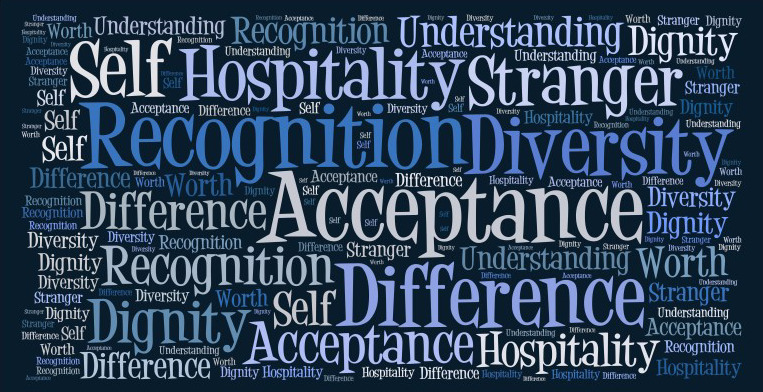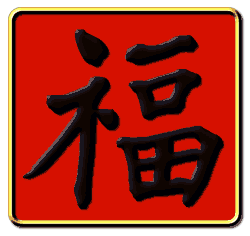
There once was an old Chinese farmer who had one son and a horse. His wife had died many years ago when his son was a baby. The farm was quite small, but they grew enough food to get by. The farm was located in a valley north of the famous Yellow Mountain in Anhui (an-way) Province in southern China.
One day, the farmer’s horse broke through the small corral on the farm and went galloping off in the direction of the nearby hills that led toward the Yellow Mountain.
The farmer’s neighbors felt sorry for the farmer, for a horse was very valuable for any farmer. “What very bad luck to have lost your horse,” they said. “Why do you say that?” asked the old farmer. “Who knows if it is bad luck?”
And sure enough, the very next night the horse returned, and behind him came twelve wild horses, which he had led back home with him. The farmer’s son quickly closed the gate of the small corral, and instead of one horse, they now had thirteen.
The neighbors stared into the corral the next morning and said, “What extraordinary good luck—to have thirteen horses!”
“Why do you say that?” the old farmer replied. “Who is to say whether it is good luck?”
The farmer and his son went to the village and purchased enough wooden posts and rails to enlarge the corral because the horses did not have enough room. They also had to buy more hay to keep all of the horses well-fed. It took a full week of hard work to make the corral larger.
Once this was done, the old farmer’s son went out riding on one of the new horses. But the horse was still wild, and it threw him off its back. He fell to the ground and broke his leg. The farmer took his son to the doctor who lived in the nearby village. The doctor put a splint on the young man’s leg and gave him crutches so he could get around.
The neighbors visited the old farmer to commiserate. “What very bad luck,” they said, “that your son has broken his leg.”
“Why do you say that?” the old farmer asked them. “Who is to say whether it is bad luck?”
And indeed, a short while later, the Emperor’s militia came, forcing all of the able-bodied young men in the village and the surrounding farms to go to fight in the war, where many of them would probably lose their lives. But when they saw the old farmer’s son bent over on his crutches with a broken leg, they passed him by and went on their way.
“How lucky you are,” the neighbors said.
Given so many changes, all the old farmer could do was smile, and accept once again what had happened.
(Source: Silf, Margaret, compiler, One Hundred Wisdom Stories, Oxford, England: Lion Publishing plc, 2003.)
This month’s Touchstone Ministry Theme is Acceptance. It is a timely topic given the experiences that many have had over the past year and the prospect of moving back into a sense of normalcy in the coming months given the advent of access to COVID-19 vaccines. In the midst of the experience of change, and transformation, there is in each of us the dual consciousness of what has been lost and what we have gained because of our share experience of hardship. To be certain that experience has varied widely because of the different resources that each of us has access to. And, even in the midst of that array of experiences we have all been touched by the continuing awakening to the inequity and vulnerability experienced by so many in our community, country and world. How shall we carry these experiences into our future?
The story of the farmer and his son that Margaret Sif offers, gives us a glimpse into the spectrum of attitudes that arise of changing circumstances. Is our fate simply a product of luck? Is our fate pre-ordained? Or do we play a part in the unfolding outcome of our existence?

The Chinese word for happiness (also auspiciousness and blessing) “Fu” is a cultural symbol that expresses people’s wishes for blessing and happiness. In the context of the story above we might translate the response of the community to “May this be a blessing to you?” Or, in the opposite, “May this not be a curse to you” when bad luck is intoned.
The response by the farmer is to 1) accept the response of the community and 2) to accept the reality that has arisen and respond to that reality in ways that promote prosperity, health and wholeness, without giving much attention at all to the pronouncement of good or bad luck. For me, this is a prime example of hope in action. Hope, here, is not energy based on an optimistic outcome, but the willingness to meet whatever befalls one with the capacity to respond authentically and meaningfully in order to support the possibility of prosperity, health and wholeness. It is the art of acceptance, not of outcomes, but of the present reality that one faces, and in that moment to commit to respond in a way that continues to give life meaning and purpose. Thus acceptance here is active, not passive, and it is in service to the reality that one is facing, not of the pronouncement of one’s fortune, good or bad.
I wonder how we might manifest such an ethic as we emerge from the trials and tribulations of the past year? What might we focus our energies on? How shall we carry the experiences we’ve had into a future that is yet to be known? Might be begin with the kind of acceptance that our tale here represents? Let us continue to find meaning and purpose in all that we are and do.
Blessings,
Aaron
